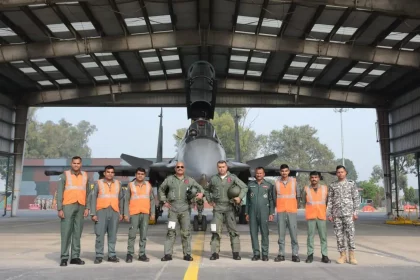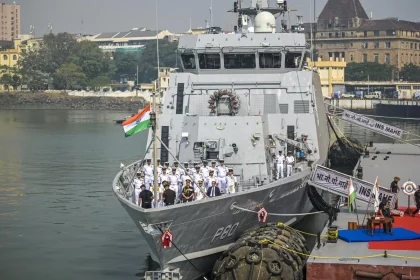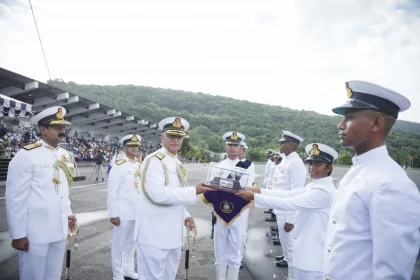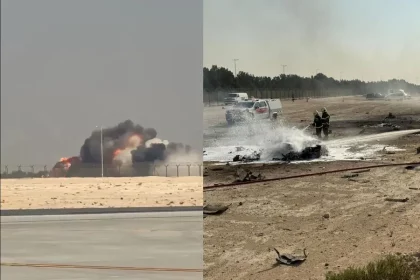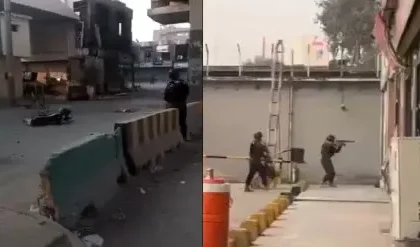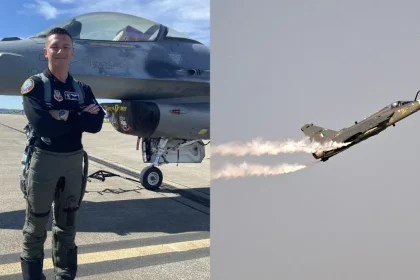Air Marshal Jeetendra Mishra Reviews Operational Preparedness at Forward Bases; Flies Su-30 MKI
WAC Chief Demonstrates Combat Readiness With Su-30 MKI Sortie, Dedicates Memorial to War Hero.
INS Mahe Commissioned Into Indian Navy; First Mahe-Class ASW Shallow Water Craft Joins Western Naval Command
Indigenous ASW Capability Gets Major Boost With Mahe-Class Lead Ship.
Indian Naval Academy to Hold Passing Out Parade on 29 November; CDS General Anil Chauhan to Review Ceremony
Ceremony to Commission Indian and Foreign Naval Cadets into Service on 29 November.
HAL Calls Tejas Crash at Dubai Airshow an ‘Isolated Occurrence’; Shares Slip 8% After Incident
Fatal Dubai Airshow crash prompts inquiry as HAL downplays long-term effects.
Gunmen and Suicide Bombers Attack Frontier Constabulary Headquarters in Peshawar
Multiple Explosions Rock Frontier Constabulary HQ Amid Fears of More Militants Inside.
US Pilot Criticises Dubai Air Show for Continuing After Tejas Crash; Cancels Final Display in Tribute to Wing Commander Namansh Syal
US Pilot Cancels Display in Tribute, Questions Air Show’s Decision to Continue After Fatal Tejas Crash.

